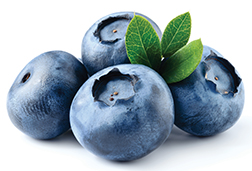Troubleshooting a Blueberry Wine
Q: I failed again last year making blueberry wine (Attempt #2). I would like my third time to be the charm. Any tips? Honestly, it was tainted with volatile acidity (VA). It didn’t have a nose, was too hot from ethanol, and was too acidic. Do I Need some sweetness to it? Maybe I need to blend it with red? Help!
— Andrew C. Mocny • Buffalo, New York
A: Ah, blueberry wine! Blueberries, huckleberries, and black currants are all favorites when it comes to home winemaking, partly because they can make dark, mouth-filling wines that can resemble the finest red wines in the world. Just like any fruit, however, they do have their own persnickety problems that need to be addressed and you’ll have to practice anti-microbial, anti-oxidation, and sanitation techniques just like you will with any winemaking project.

• Pectic Enzymes — Blueberries, like most fruits, have a higher pectin content than wine grapes and you’ll want to add either a liquid or powdered pectic enzyme. Whichever brand you go with, be sure to follow the dosage instructions and don’t add too much. Be sure to add it at the time indicated for maximum effectiveness. Be sure not to add enzymes at the same time as SO2 — SO2 in high concentrations can damage the delicate protein structure.
• Sugar — You will need to add sugar to your blueberries because blueberries just aren’t as sweet as grapes. I always aim to have table wines end up at dryness in the 11–13% alcohol range, so you’ll want to add enough sugar or red grape concentrate to get up to 21–24 °Brix to get there.
Red grape concentrate (which you should be able to buy canned or frozen from most home winemaking supply stores) can be a wonderful thing to add because, as opposed to straight up sugar and water, concentrate brings necessary micronutrients and other materials from the grapes that will enhance the finished product. You mentioned you think the wine was too alcoholic — I’d guess that it was unbalanced….meaning that you had too much alcohol which overpowered the other elements.
You may want to try adding red grape concentrate instead of sugar to be sure you’re also getting some tannins and color elements in with the extra sugar.
• VA Control — Just like any grape wine, you’re going to want to make sure you control against acetic acid bacteria every step of the way by using sulfur dioxide at the correct times along the way — from fermentation all the way through to the bottling process. Clean wines come from a well-regimented sulfur plan.
You may also benefit from this “Tips From the Pros” article on making blueberry wine.


